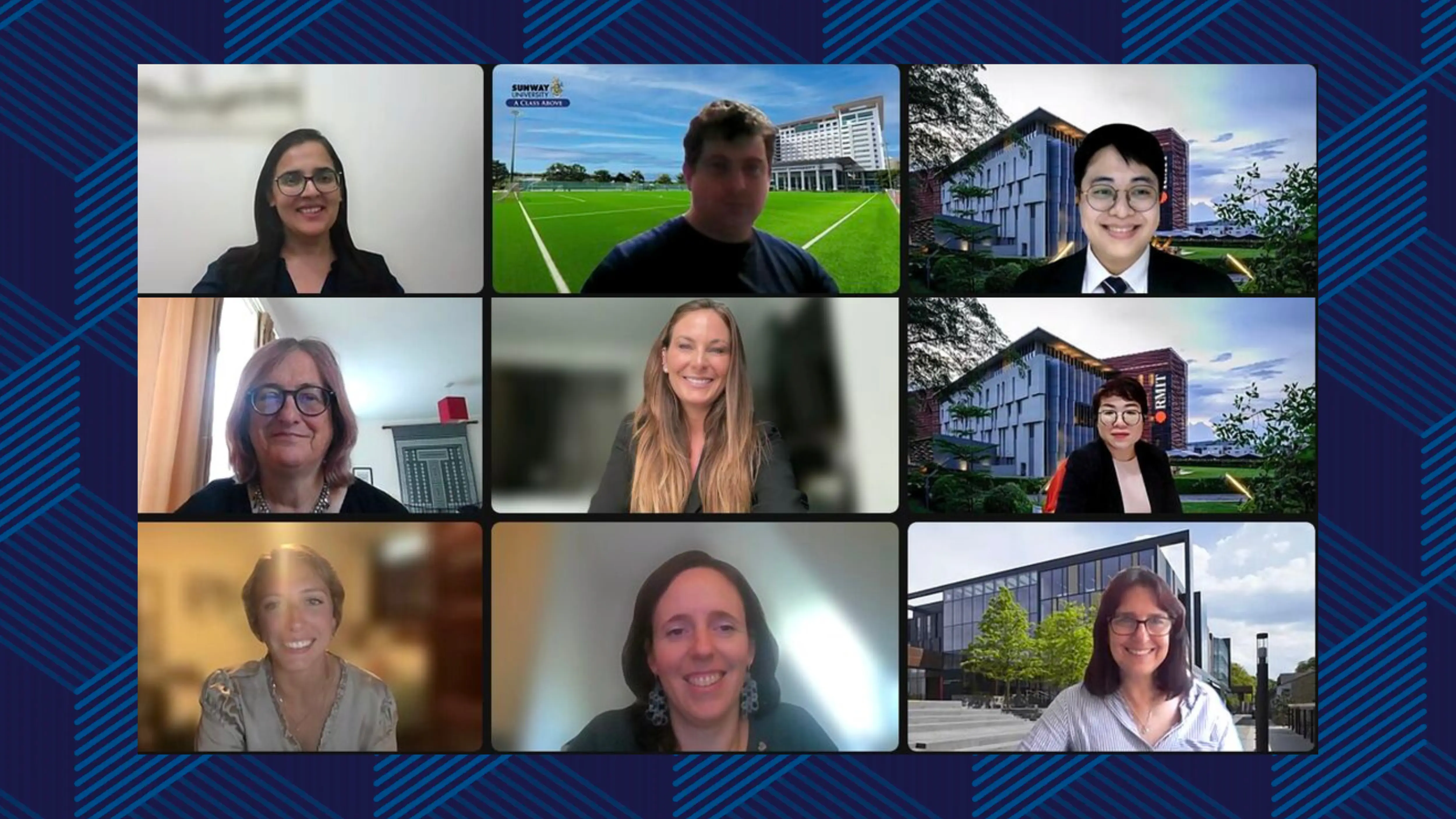Access

- Submit your institution’s Sharing Information on Progress (SIP) Report
- Access SIP reporting across institutions
Access

Access


In 2023, Dr. Iffat Sabir, Deputy Dean of the College of Business (COB) at Al Ain University in the United Arab Emirates, faced a familiar challenge for academic leaders: turning an ambitious mission statement into reality. COB’s mission spoke of developing “responsible leaders for tomorrow,” yet sustainability was not yet embedded in teaching and learning. For Dr. Sabir, this gap represented both a challenge and an opportunity. Her engagement with PRME would become the catalyst for a journey of personal growth and college transformation that continues to unfold.
The Catalyst for Change
What began as a single assignment evolved into a driving force for college transformation when Dr. Sabir started working towards responsible education by engaging with PRME, as COB became a Signatory institution. With her hands-on and strategic approach, she first engaged through PRME’s Carbon Literacy Training programme. Reflecting on the experience, she notes, “I am a learner of sustainability. And whatever I learn, I go back to my college and implement it.”
“The training was eye-opening,” she adds. “It shifted my perspective from thinking about sustainability as an abstract goal to seeing how it could be practically embedded in what we teach and how we lead.” Inspired, Dr. Sabir and the College Dean guided college faculty members through the same programme the following semester, a multiplier effect showing how one individual’s engagement with PRME can spark broader institutional momentum and transformation.
Research That Resonates Globally
Dr. Sabir continued taking advantage of opportunities from the PRME community and soon her contributions extended beyond her campus. A collaboration between PRME and the Higher Education for Good Foundation (HE4G) gave PRME Signatories access to the Youth Talks dataset: the largest global youth consultation ever conducted, with nearly one million contributions from young people across 212 countries. This partnership fostered research projects across the community, and Dr. Sabir was one who benefited from the robust dataset.
Her study, recently accepted in the International Journal of Management Education, examines how empathy, altruism, and global awareness shape young people’s learning priorities. “The most interesting thing for me was the global youth,” she reflects, highlighting the relevance to Al Ain’s diverse student body representing over 40 nationalities. Her research confirmed that students with higher levels of empathy and altruistic orientation had significantly different expectations from their educational programs. For Dr. Sabir, this underscored the importance of embedding sustainability-based education into the curriculum and using evidence to guide institutional change.
Embedding Sustainability Across the College
From there, the sustainability perspective fed directly into curriculum reform. Under the Deanship team, the Bachelor in Business Administration program was revised by the faculty so that every course explicitly aligns with one or more UN Sustainable Development Goals (SDGs). Community engagement activities were also reframed to reinforce the same principles outside the classroom. “Sustainability is always around in whatever we are doing in our college - research, community engagement, any other initiative,” she explains. “Now it is reflected 100 percent for my students.”
Students, particularly women, have been central to this transformation. Recognizing the need to empower female students with skills, confidence, and networks, Dr. Sabir spearheaded a Women’s Leadership Forum. The initiative connects students with industry mentors, provides training in leadership and decision-making, and highlights women’s contributions both within society and at home, as a decision-maker. “It’s about creating opportunities for students who have historically been underrepresented in leadership spaces to develop as leaders who can drive progress on the SDGs,” she says.
This expansion demonstrates the ripple effect of how a single individual’s PRME engagement can scale to create systemic transformation.
The Power of Community
For Dr. Sabir, PRME’s greatest strength lies in its sense of collegiality, “You don’t feel like an outsider. You feel part of the system, with a role to contribute.” This stands in stark contrast to other sustainability networks. “You don’t feel that warmth, that connection, that accessibility that I feel when working with PRME,” she notes.
This culture is tangible in everyday interactions. “Send an email, and in a day you get back the response you’re looking for, not a generic auto-reply,” she explains. Partners are “always willing to work” and “not afraid of sharing their results,” creating an environment where knowledge flows freely. “Most of the content is free, which I really love, because it gives my students access without paying a fee to learn about sustainability initiatives,” she adds.
Through this collaborative ethos, Dr. Sabir extends PRME’s impact beyond her institution. As a mentor in the PRME Students Mentorship Programme, she guides students from Beijing to California, sharing resources and opportunities that might otherwise remain inaccessible. “When I see their response, it’s really like a change that PRME is making in the community. That is success.”
From Individual to Institutional Transformation
This sense of belonging, combined with concrete resources from Senior Leadership and opportunities for engagement, has allowed Dr. Sabir to transform not only her own approach to education but also the College of Business at Al Ain University’s capacity to develop responsible leaders. Her story illustrates how one individual’s engagement with PRME can ripple outward, shaping faculty, students, institutions, and communities in ways that bring responsible management education to life.